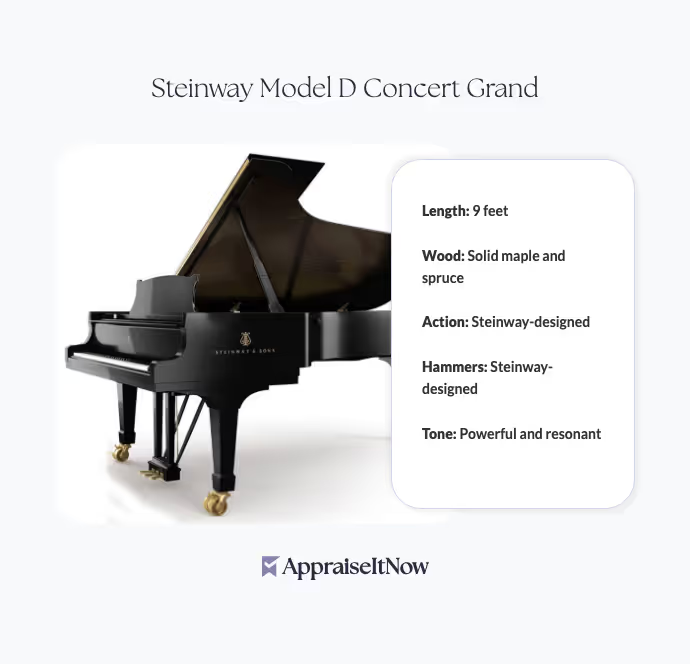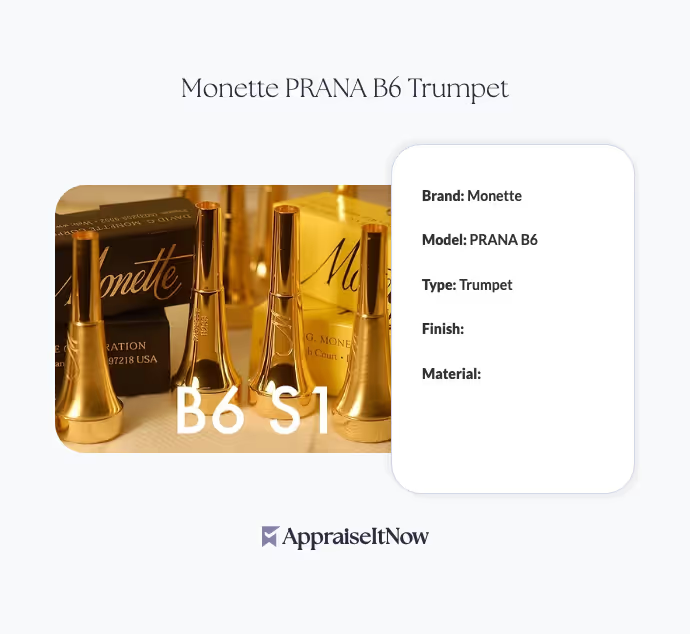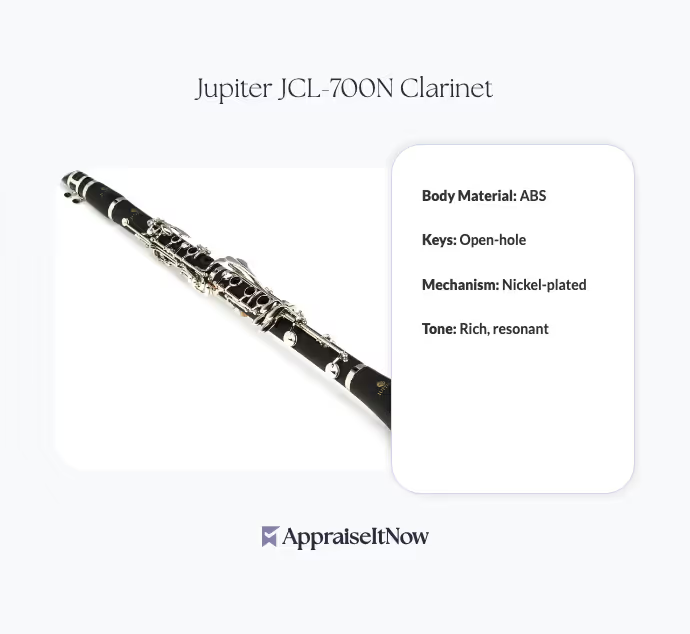<h1>How to Get Your Steinway Model D Concert Grand Appraised</h1>
<p>The Steinway Model D Concert Grand stands as one of the most prestigious instruments in the world, representing decades of meticulous craftsmanship and acoustic excellence. Whether you're purchasing one, selling an inherited piano, or securing insurance coverage, understanding the appraisal process for your Steinway Model D is essential to ensuring you have accurate valuation documentation backed by credentialed experts.</p>
<h2>Understanding Your Steinway Model D's Market Value</h2>
<p>Your Steinway Model D typically appraises between <strong>$35,000 and $50,000</strong> depending on condition, age, and provenance. This concert-quality instrument, first introduced in 1884, has maintained its position as the preferred choice of professional concert pianists worldwide. The piano's impressive 9-foot length and distinctive Steinway construction deliver a powerful, resonant tone capable of filling even the largest performance halls, which directly influences its market positioning and investment potential.</p>
<div class="callout tip"><p><strong>Market Insight</strong></p>
<p>Steinway Model D pianos crafted in the New York factory consistently command premium valuations compared to Hamburg-manufactured examples or significantly older vintage models.</p></div>
<h2>Why Professional Appraisal Matters for Your Steinway</h2>
<p>When evaluating a Steinway Model D, professional appraisers examine far more than just the instrument's physical presence. Your piano's value reflects the convergence of engineering excellence, historical significance, and market demand. Much like assessing other high-value <a href="/types/personal-property">personal property</a>, a certified appraisal provides documentation essential for insurance, estate planning, and potential sale transactions.</p>
<p>The question many Steinway owners ask—"Do Steinway pianos go up in value?"—has a nuanced answer. Well-maintained Model D examples have historically appreciated, though rates vary based on maintenance history, rebuild work, and overall condition. An expert appraiser distinguishes between pianos with original components versus those requiring restoration work, a distinction that significantly impacts valuation. This expertise parallels professional assessments of other high-value <a href="/blog/assessing-the-value-of-musical-instruments-appraisals-of-vintage-guitars-pianos-and-violins">musical instruments and memorabilia</a>.</p>
<h2>Key Specifications That Influence Appraisal Value</h2>
<p>Your Steinway Model D's construction details directly affect its appraised worth. The instrument features a solid spruce soundboard—a critical component affecting tone quality and longevity—combined with maple and spruce throughout its frame. The piano weighs over <strong>1,000 pounds</strong>, reflecting the substantial materials and engineering required for concert-quality performance.</p>
<p>Several technical elements matter to appraisers:</p>
<ul>
<li><strong>Soundboard integrity</strong>: Original solid spruce versus repairs or replacement</li>
<li><strong>Action mechanism</strong>: Steinway's renowned action system and hammer responsiveness</li>
<li><strong>Keyboard condition</strong>: 88 keys with ivory-like keytops and their respective wear patterns</li>
<li><strong>Serial number matching</strong>: Verification of all components' manufacturing year and authenticity</li>
<li><strong>Case finish</strong>: Original lacquer, refinishing, or structural repairs</li>
</ul>
<p>The difference between your concert grand and standard grand pianos directly influences appraisal methodology. Concert grands like the Model D feature enhanced scaling and more responsive action systems, commanding substantially higher valuations than parlor or baby grands. Understanding these distinctions helps you appreciate why your Steinway represents a significant investment worthy of professional documentation.</p>
<h2>Manufacturing Heritage and Authenticity Verification</h2>
<p>Steinway's New York factory produces approximately <strong>500 Model D pianos annually</strong>, making each instrument a notable piece of craftsmanship even within the company's own production. Your Model D's year of manufacture significantly affects its appraisal value. Pianos from the company's golden era (1900-1950) often command different valuations than more recent models, though this relationship isn't always linear—the question of whether grand pianos get better with age has a complex answer involving both wear and potential for restoration.</p>
<p>When seeking appraisal services, professional experts verify your piano's authenticity through:</p>
<ul>
<li>Serial number research cross-referencing Steinway production records</li>
<li>Internal mechanism inspection confirming era-appropriate construction methods</li>
<li>Material analysis assessing original versus replacement components</li>
<li>Finish assessment identifying restoration work or original lacquer</li>
</ul>
<p>Much like determining the value of other <a href="/types/antique-furniture">antique furniture</a> and significant household investments, documenting your Steinway's provenance strengthens its appraisal. Pianos with clear ownership histories, concert performance records, or connections to notable musicians command premiums over instruments lacking documentation.</p>
<h2>Condition Assessment and Restoration Considerations</h2>
<p>Your piano's physical condition fundamentally determines its appraisal value within the <strong>$35,000-$50,000 range</strong>. A Steinway Model D in excellent condition with original components and minimal wear approaches the upper valuation threshold, while instruments requiring restoration work or showing significant use fall toward the lower range.</p>
<p>Professional appraisers evaluate condition through comprehensive inspection, examining the soundboard for cracks or warping, assessing hammer responsiveness, testing all action mechanisms, and evaluating the case for damage or refinishing. Unlike some investment concerns, comprehensive restoration can sometimes increase value if performed by qualified technicians using period-appropriate materials. However, improper modifications or non-original parts typically reduce appraisal values.</p>
<div class="callout note"><p><strong>Restoration Impact</strong></p>
<p>Documentation of any restoration work—particularly by qualified piano technicians—should accompany your appraisal, as this transparency often results in more favorable valuations than attempting to conceal modifications.</p></div>
<h2>Recent Market Trends and Comparable Sales</h2>
<p>Understanding current market dynamics helps contextualize your Steinway Model D's specific value. The concert grand piano market has remained relatively stable, though private sales occasionally exceed published estimates. Factors influencing recent valuations include global economic conditions, the density of serious pianists in your geographic region, and the availability of comparable instruments for purchase.</p>
<p>When celebrities like Elton John or Taylor Swift are discussed in relation to specific piano models, it underscores how certain ownership histories can influence collectibility. While your Steinway may not have such notable provenance, any documented performance history or professional use adds meaningful value that appraisers specifically document.</p>
<h2>Insurance and Estate Planning Applications</h2>
<p>One primary reason to obtain professional appraisal of your Steinway Model D is establishing accurate replacement cost for insurance purposes. Many homeowners' policies undervalue musical instruments, and specialized <a href="/blog/the-importance-of-appraisals-for-insurance">insurance appraisals</a> ensure adequate coverage. If your piano is damaged, loss, or theft occurs, comprehensive appraisal documentation prevents disputes and accelerates claim resolution.</p>
<p>Estate planning similarly requires accurate valuations. Whether your Model D will transfer to heirs or be liquidated, professional appraisal provides the documentation necessary for fair division of assets and proper tax reporting. This process parallels comprehensive <a href="/blog/getting-the-most-out-of-your-estate-appraisal">estate appraisal services</a> that address all significant property elements.</p>
<h2>Finding the Right Appraiser for Your Steinway</h2>
<p>Professional piano appraisals require specialized expertise that general property appraisers typically lack. When seeking valuation services, look for appraisers with documented experience in high-value instruments and connections to the piano industry. Credentials from organizations like the <strong>American Society of Appraisers (ASA)</strong> or equivalent professional bodies indicate training in USPAP-compliant valuation methodology.</p>
<p>The most qualified appraisers often maintain active connections with concert pianists, music schools, or performance venues, giving them immediate access to market intelligence and comparable sales data. Your appraiser should conduct in-person evaluation of your piano, document condition with detailed photography, and provide written reports suitable for insurance, legal, or transaction purposes.</p>
<div class="callout tip"><p><strong>Appraiser Selection</strong></p>
<p>Request references from previous clients and verify direct experience appraising Steinway Model D instruments specifically, as expertise with brand and model specificity significantly impacts valuation accuracy.</p></div>
<h2>Documentation You'll Need for Appraisal</h2>
<p>Assembling supporting documentation before your appraisal accelerates the process and may result in more comprehensive valuations. Gather any available records including:</p>
<ul>
<li>Purchase receipts or sales documentation</li>
<li>Maintenance and tuning records showing professional care</li>
<li>Any restoration or repair documentation with invoices</li>
<li>Concert performance records or rental history</li>
<li>Original instruction materials or registration documents</li>
<li>High-quality photographs of the instrument from multiple angles</li>
</ul>
<p>This documentation mirrors the comprehensive <a href="/blog/what-you-need-to-know-about-personal-property-appraisals">personal property appraisal</a> process, where supporting records strengthen valuation conclusions. Appraisers can work without these materials, but their presence often results in more precise valuations and stronger defensibility if valuations are later questioned.</p>
<h2>The Steinway Model D in Context of Other Instruments</h2>
<p>Understanding how your Steinway compares to other concert instruments provides context for its valuation. While answering "What is the best grand piano in the world?" involves subjective considerations, the Steinway Model D consistently ranks among the top tier alongside Bösendorfer, Hamburg Steinway, and select Yamaha instruments. The question of whether Bösendorfer or Steinway is better remains debated among pianists and collectors, with valuations reflecting regional preferences and pianist specialization.</p>
<p>Your Model D's position in the concert grand market remains exceptionally strong. The piano's reliability, tonal quality, and professional acceptance ensure sustained demand from serious musicians and institutional purchasers. This market position supports stable valuations and genuine potential for appreciation, particularly for well-maintained examples.</p>
<h2>Professional Appraisal Standards and Compliance</h2>
<p>AppraiseItNow connects you with appraisers maintaining <strong>USPAP compliance</strong>, the professional standard governing all appraisals. This certification ensures your Steinway Model D valuation meets rigorous methodology requirements and remains defensible in legal, insurance, or financial contexts. USPAP-compliant appraisals include detailed documentation of methodology, comparable sales analysis, and specific consideration of all factors affecting value.</p>
<p>Whether you require appraisal for insurance purposes, estate settlement, charitable donation documentation, or transaction facilitation, professional standards ensure consistency and credibility. Your appraiser will clearly articulate the valuation approach, explain how condition and market factors influenced conclusions, and provide written documentation suitable for all professional applications.</p>
<hr />
<div class="callout note"><p><strong>Key Takeaway</strong></p>
<p>Your Steinway Model D Concert Grand deserves professional appraisal from credentialed experts who understand both the instrument's technical specifications and current market dynamics. Whether securing insurance coverage, planning estate distribution, or evaluating purchase and sale decisions, certified appraisal documentation ensures you have accurate valuation backed by industry expertise and defensible methodology, providing confidence in every decision involving this significant investment.</p></div>
















